In a recent far-reaching discussion with Lauren More, Vice President Communications for Ford of Canada, many questions were addressed – and answered.
Back in 2006, before the major credit crunch hit, Ford began to prepare for what they saw as being almost inevitable; the decimation of the automotive industry as we know it today. Tough and impactful decisions were discussed – and implemented. This resulted in closures, overall reductions in product lines – and a loss of employees. The salad days were long gone. U.S. $23 billion was borrowed. $23 billion – that’s with a ‘b’.
With this financial cushion, Ford began the arduous but necessary task of rebuilding an iconic brand.
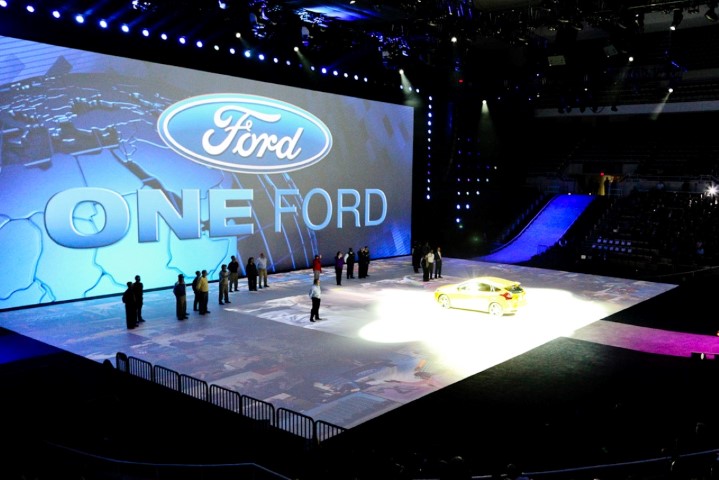 Ms. More continued by saying that Ford’s business strategy is embodied in their ‘ONE Ford’ plan. ONE Ford expands on this worldwide company’s four-point business plan for achieving success globally. The four-point business plan consists of the following:
Ms. More continued by saying that Ford’s business strategy is embodied in their ‘ONE Ford’ plan. ONE Ford expands on this worldwide company’s four-point business plan for achieving success globally. The four-point business plan consists of the following:
•Aggressively restructure to operate profitably at the current demand and changing model mix;
•Accelerate development of new products customers want and value;
•Finance this plan and improve the balance sheet; and,
•Work together effectively as one team.
So, by continuing to build on this plan, ONE Ford encourages focus, teamwork and a single global approach, aligning employee efforts toward a common definition of success. It emphasizes the importance of working together as one team to achieve automotive leadership, which is measured by the satisfaction of customers, employees and essential business partners, including dealers, investors, suppliers, unions/councils and the communities in which Ford operates.
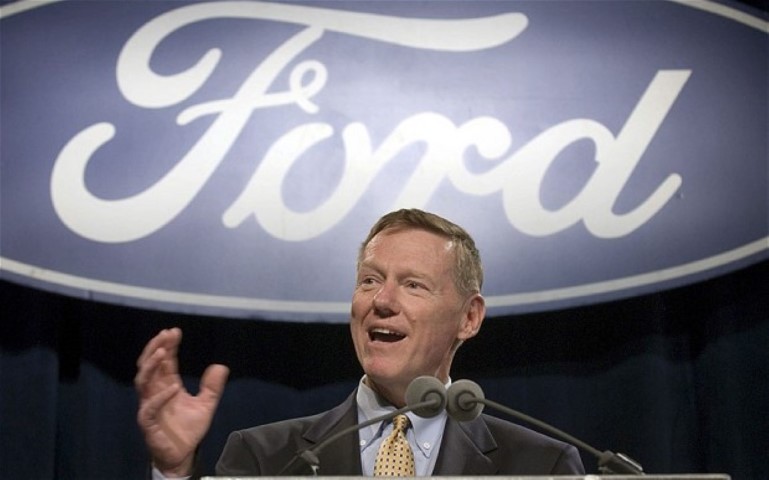 From the ONE plan foundation, led by the Chief Executive Officer of the Ford Motor Company, Alan Mulally, Ford turned things around by globalizing operations, cutting costs, improving quality and expanding the line-up with fuel-efficient models like the Fiesta sub-compact – a true world car, designed and produced for consumers in practically every market that sells Ford product.
From the ONE plan foundation, led by the Chief Executive Officer of the Ford Motor Company, Alan Mulally, Ford turned things around by globalizing operations, cutting costs, improving quality and expanding the line-up with fuel-efficient models like the Fiesta sub-compact – a true world car, designed and produced for consumers in practically every market that sells Ford product.
As Ms. More stated, the popular auto maker had to learn some very hard lessons from before, reduce its often perceived arrogant position (my words) that bigger is better and that Ford quality was either comparable or better than the upstart Asian manufacturers who seemed to ‘get it’ sooner than their North American counterparts.
 A word we will see more of in the future in automotive vernacular is ‘EcoBoost’. EcoBoost is a family of turbocharged, direct-injected gasoline engines produced by the Ford Motor Company and co-developed by FEV engineering. Engines equipped with EcoBoost technology are designed to deliver power and torque consistent with larger engine displacement, while achieving approximately 20% better fuel efficiency and 15% reduced greenhouse emissions than larger engines. In fact, relative to the power output and fuel efficiency of hybrid and diesel technologies, Ford sees EcoBoost as an affordable and versatile alternative and intends on using it extensively in future vehicle applications. Now that does not mean that vehicles with a much-reduced carbon footprint will not be available. In Michigan for example, on one of the sprawling production lines, four different vehicles now come down one line. Further, significant effort continues to be pumped into research and development on hybrid and plug-in hybrid vehicles – such as the much lauded innovative C-Max compact now available in dealerships.
A word we will see more of in the future in automotive vernacular is ‘EcoBoost’. EcoBoost is a family of turbocharged, direct-injected gasoline engines produced by the Ford Motor Company and co-developed by FEV engineering. Engines equipped with EcoBoost technology are designed to deliver power and torque consistent with larger engine displacement, while achieving approximately 20% better fuel efficiency and 15% reduced greenhouse emissions than larger engines. In fact, relative to the power output and fuel efficiency of hybrid and diesel technologies, Ford sees EcoBoost as an affordable and versatile alternative and intends on using it extensively in future vehicle applications. Now that does not mean that vehicles with a much-reduced carbon footprint will not be available. In Michigan for example, on one of the sprawling production lines, four different vehicles now come down one line. Further, significant effort continues to be pumped into research and development on hybrid and plug-in hybrid vehicles – such as the much lauded innovative C-Max compact now available in dealerships.
As consumers, we tend to be tactile and consequently greater emphasis is also being placed on every vehicle’s interior – meeting and exceeding customer and market expectations with a quality proposition second-to-none.
And how is all this working? Well, in late October 2012, the Automobile Journalists Association of Canada (AJAC) held its annual Test Fest to determine the 2013 Canadian Car of the Year (CCOTY), Ford led the competition with top spot earned in four disparate categories:
•2012 Ford Focus Electric won ‘Best New City Car’;
•2013 Ford Fusion Hybrid claimed top spot for ‘Best New Family Car’ over $30,000;
•2013 Ford Escape 1.6LSE ‘Best New SUV’ under $35,000; and,
•2013 Ford Focus ST scored ‘Best New Sports-Performance Car ‘ under $50,000.
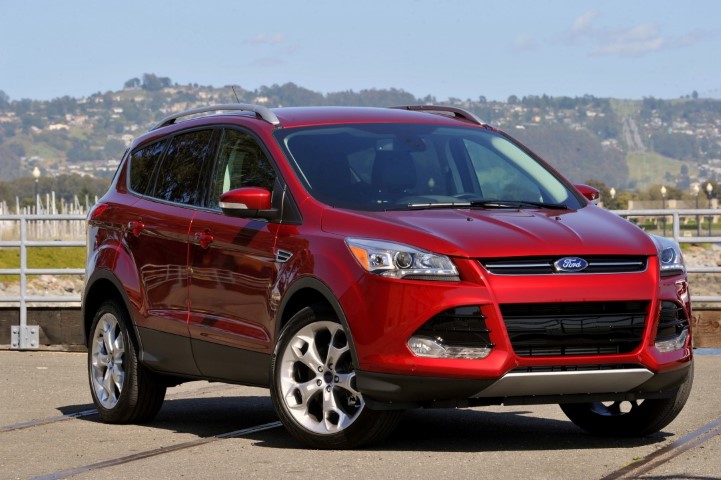 Will one of these Ford vehicles win the coveted 2013 AJAC CCOTY? Time will tell. Votes from more than 80 AJAC-accredited journalists are now being tabulated and the overall winning vehicle will be announced at the Canadian International Auto Show, February 14, 2013.
Will one of these Ford vehicles win the coveted 2013 AJAC CCOTY? Time will tell. Votes from more than 80 AJAC-accredited journalists are now being tabulated and the overall winning vehicle will be announced at the Canadian International Auto Show, February 14, 2013.
And the icing on the 2012 cake?
•Ford is the best-selling automaker in Canada for the third consecutive year
•Ford F-Series is the best-selling vehicle in Canada for the third year in-a-row
•Ford F-Series is the best-selling pickup in Canada for a record 47 consecutive years
•Ford F-Series sold more than 100,000 units in Canada; first time an automaker has sold that many trucks in single year
•Overall truck sales rose 1%
For 2013, don’t underestimate a once vulnerable underdog who continues to strive for consumer and market acceptance – one vehicle at a time.
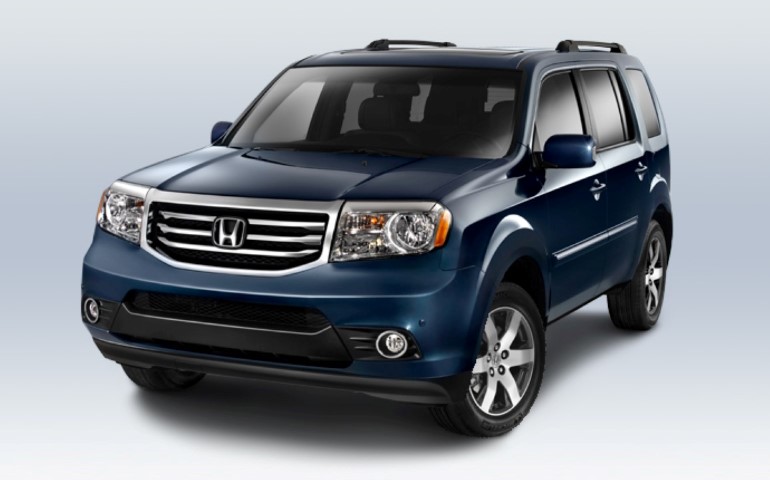 TORRANCE, CA - Honda is recalling 748,000 Pilot and Odyssey vehicles in the United States and Canada because of a possible problem with their driver's side airbags.
TORRANCE, CA - Honda is recalling 748,000 Pilot and Odyssey vehicles in the United States and Canada because of a possible problem with their driver's side airbags.

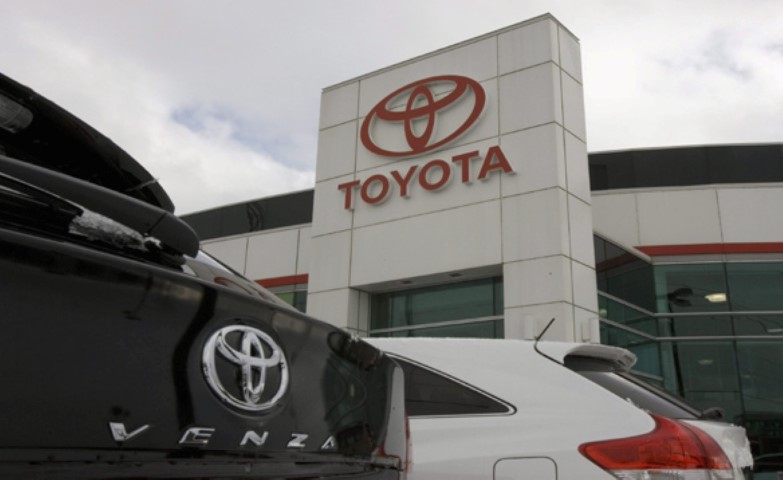 The vehicle buying and owning process has always involved the dealership as the primary stage and many times the only stage that many consumers experience. In earlier years, the general buying public bought locally and didn’t have expectations of competitors to contrast. In many regions, loyalty wasn't an afterthought and few manufacturers were distributing product.
The vehicle buying and owning process has always involved the dealership as the primary stage and many times the only stage that many consumers experience. In earlier years, the general buying public bought locally and didn’t have expectations of competitors to contrast. In many regions, loyalty wasn't an afterthought and few manufacturers were distributing product.  A variable that seems consistent when speaking to successful dealerships is their focus on the customer’s overall experience. A customer’s dealership experience is arguably the most important element in the buying process. Presently, Customer Satisfaction Index (CSI) is a tool that’s at the forefront of many business models assisting dealers in realizing the impact of customer satisfaction on a daily basis with the understanding of further dividends being rewarded down the line. It should also be noted that customers today possess an increasing level of knowledge that must be respected and acknowledged on the dealership floor. What results is a selling process that’s less dependent on sales tactics and more focused towards building a reliable relationship with the customer.
A variable that seems consistent when speaking to successful dealerships is their focus on the customer’s overall experience. A customer’s dealership experience is arguably the most important element in the buying process. Presently, Customer Satisfaction Index (CSI) is a tool that’s at the forefront of many business models assisting dealers in realizing the impact of customer satisfaction on a daily basis with the understanding of further dividends being rewarded down the line. It should also be noted that customers today possess an increasing level of knowledge that must be respected and acknowledged on the dealership floor. What results is a selling process that’s less dependent on sales tactics and more focused towards building a reliable relationship with the customer.  Most of a buyers shopping is now done online – and this doesn’t stop when it comes to purchasing a new or used vehicle. On an everyday basis, customers can do most of their research online through an abundance of automotive media outlets before they even step foot in a dealership. Most customers still visit the dealership showrooms, but it’s more for a final act to see and test drive the tangible product that they’ve been learning so much about. Like any new change, both advantages are disadvantages surface for the dealer. For one, they’re often dealing with a more informed customer that’s more educated and serious about their purchase. Deals can now be made in a more efficient manner and decisions can be reached sooner.
Most of a buyers shopping is now done online – and this doesn’t stop when it comes to purchasing a new or used vehicle. On an everyday basis, customers can do most of their research online through an abundance of automotive media outlets before they even step foot in a dealership. Most customers still visit the dealership showrooms, but it’s more for a final act to see and test drive the tangible product that they’ve been learning so much about. Like any new change, both advantages are disadvantages surface for the dealer. For one, they’re often dealing with a more informed customer that’s more educated and serious about their purchase. Deals can now be made in a more efficient manner and decisions can be reached sooner. 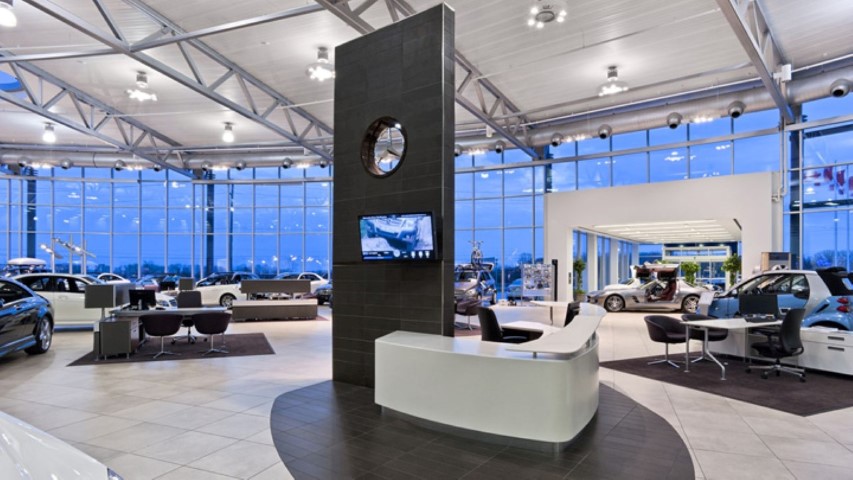 With so much competition and identical product offerings in close proximity – dealers need to find a way to identify themselves. Comparative advantage is the key and creating, maintaining and improving the brand that is your dealership is the latest variable for success. A strategy and philosophy must be set out and all things need to be considered.
With so much competition and identical product offerings in close proximity – dealers need to find a way to identify themselves. Comparative advantage is the key and creating, maintaining and improving the brand that is your dealership is the latest variable for success. A strategy and philosophy must be set out and all things need to be considered. Ms. More continued by saying that Ford’s business strategy is embodied in their ‘ONE Ford’ plan. ONE Ford expands on this worldwide company’s four-point business plan for achieving success globally. The four-point business plan consists of the following:
Ms. More continued by saying that Ford’s business strategy is embodied in their ‘ONE Ford’ plan. ONE Ford expands on this worldwide company’s four-point business plan for achieving success globally. The four-point business plan consists of the following: From the ONE plan foundation, led by the Chief Executive Officer of the Ford Motor Company, Alan Mulally, Ford turned things around by globalizing operations, cutting costs, improving quality and expanding the line-up with fuel-efficient models like the Fiesta sub-compact – a true world car, designed and produced for consumers in practically every market that sells Ford product.
From the ONE plan foundation, led by the Chief Executive Officer of the Ford Motor Company, Alan Mulally, Ford turned things around by globalizing operations, cutting costs, improving quality and expanding the line-up with fuel-efficient models like the Fiesta sub-compact – a true world car, designed and produced for consumers in practically every market that sells Ford product.  A word we will see more of in the future in automotive vernacular is ‘EcoBoost’. EcoBoost is a family of turbocharged, direct-injected gasoline engines produced by the Ford Motor Company and co-developed by FEV engineering. Engines equipped with EcoBoost technology are designed to deliver power and torque consistent with larger engine displacement, while achieving approximately 20% better fuel efficiency and 15% reduced greenhouse emissions than larger engines. In fact, relative to the power output and fuel efficiency of hybrid and diesel technologies, Ford sees EcoBoost as an affordable and versatile alternative and intends on using it extensively in future vehicle applications. Now that does not mean that vehicles with a much-reduced carbon footprint will not be available. In Michigan for example, on one of the sprawling production lines, four different vehicles now come down one line. Further, significant effort continues to be pumped into research and development on hybrid and plug-in hybrid vehicles – such as the much lauded innovative C-Max compact now available in dealerships.
A word we will see more of in the future in automotive vernacular is ‘EcoBoost’. EcoBoost is a family of turbocharged, direct-injected gasoline engines produced by the Ford Motor Company and co-developed by FEV engineering. Engines equipped with EcoBoost technology are designed to deliver power and torque consistent with larger engine displacement, while achieving approximately 20% better fuel efficiency and 15% reduced greenhouse emissions than larger engines. In fact, relative to the power output and fuel efficiency of hybrid and diesel technologies, Ford sees EcoBoost as an affordable and versatile alternative and intends on using it extensively in future vehicle applications. Now that does not mean that vehicles with a much-reduced carbon footprint will not be available. In Michigan for example, on one of the sprawling production lines, four different vehicles now come down one line. Further, significant effort continues to be pumped into research and development on hybrid and plug-in hybrid vehicles – such as the much lauded innovative C-Max compact now available in dealerships.  Will one of these Ford vehicles win the coveted 2013 AJAC CCOTY? Time will tell. Votes from more than 80 AJAC-accredited journalists are now being tabulated and the overall winning vehicle will be announced at the Canadian International Auto Show, February 14, 2013.
Will one of these Ford vehicles win the coveted 2013 AJAC CCOTY? Time will tell. Votes from more than 80 AJAC-accredited journalists are now being tabulated and the overall winning vehicle will be announced at the Canadian International Auto Show, February 14, 2013.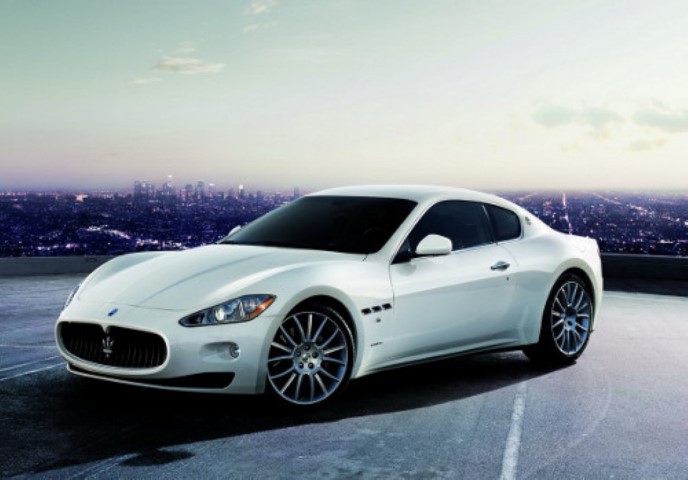 Advertisements of luxury vehicles appear on the Canadian websites of AutoTrader, eBay, Craigslist, Kijiji and Wheels.ca at prices regulators say are too good to be true.
Advertisements of luxury vehicles appear on the Canadian websites of AutoTrader, eBay, Craigslist, Kijiji and Wheels.ca at prices regulators say are too good to be true.